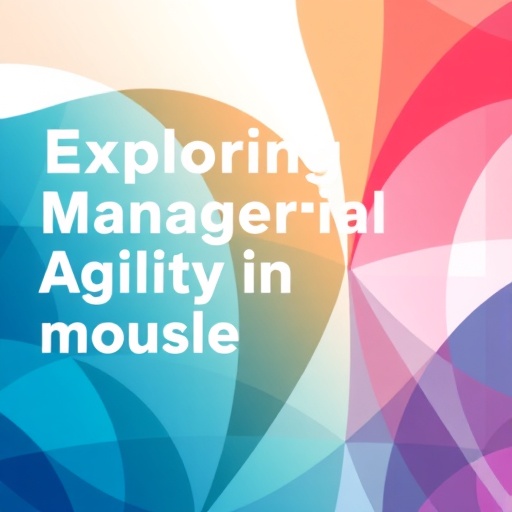In the ever-evolving landscape of healthcare, the importance of managerial agility in nursing cannot be overstated. The contemporary challenges faced by healthcare organizations, especially in the nursing sector, require leaders who can adapt swiftly to change, foster innovation, and enhance the quality of care delivered to patients. This vital concept is thoroughly analyzed in the recently published study by Gougjehyaran, Maleki, and Sahebihagh, where they delve into the essence of managerial agility and its implications for nursing practice.
Understanding managerial agility is crucial in today’s nursing environment, as it encompasses a multitude of competencies that enable nurses in leadership positions to respond effectively to unexpected circumstances. The research highlights that such agility involves not only quick decision-making skills but also the capacity to implement changes smoothly in various aspects of healthcare delivery. This dynamic attribute is essential, considering the relentless demands on healthcare professionals that have been accentuated by global health crises and resource constraints.
The authors assert that managerial agility is not just a response to imminent challenges but also a proactive approach that can cultivate a more resilient nursing workforce. The study identifies the competencies that define an agile nurse leader, which include strategic thinking, emotional intelligence, and the ability to engage effectively with team members. By synthesizing these traits, nurse leaders can create an environment that encourages collaboration and adaptability, ultimately leading to improved patient outcomes.
In their analysis, the researchers propose that developing managerial agility should be an integral part of nursing education and mentorship programs. They emphasize that while clinical expertise is critical, the addition of agile management skills can elevate the role of nurses, equipping them with the tools needed to navigate complex healthcare systems. Such emphasis on agility not only enhances the effectiveness of nursing practice but also fosters a culture of continuous learning and improvement.
Moreover, the study highlights the significance of leveraging technology in developing managerial agility. The authors point out that digital tools can facilitate better communication, data sharing, and decision-making processes among nursing teams. With the integration of advanced technological solutions, nurse leaders can enhance their capability to make informed decisions swiftly, thus streamlining operations and improving patient care services.
This research further articulates the impact of managerial agility on team dynamics within the nursing sector. Agile leaders possess the ability to inspire and motivate their teams, fostering an environment of trust and empowerment. Such a supportive culture enables nurses to develop their skills fully and encourages them to take initiative in their practice, ultimately leading to higher levels of job satisfaction and retention in the profession.
The authors also addressed potential barriers to cultivating managerial agility in nursing, such as institutional resistance to change and lack of access to relevant training. They argue that overcoming these obstacles necessitates a concerted effort from healthcare organizations to prioritize leadership development and provide ongoing support to nursing staff. By investing in agility training and resources, institutions can better prepare their workforce for the complexities of modern healthcare.
Furthermore, the concept analysis presented in the article provides a framework for understanding the multifaceted nature of managerial agility in nursing. The authors categorize agility into various dimensions, including operational, strategic, and adaptive agility. Each dimension plays a distinct role in shaping how nurse leaders approach their responsibilities and navigate challenges. This classification aids in better comprehending the different aspects of agility and can inform future research and practice in nursing leadership.
In addition, the implications of this research extend beyond nursing alone, as the principles of managerial agility can be applied to various healthcare settings. By adopting an agile approach, healthcare leaders across disciplines can enhance their service delivery and improve patient engagement. As the healthcare landscape continues to evolve, embracing agility will become increasingly relevant to maintaining a competitive edge and achieving organizational goals.
Another significant aspect of this study is the call for a shift in the perception of nursing leadership from a traditional top-down approach to one that is more collaborative and inclusive. The authors argue that fostering a shared leadership model can enhance agility by encouraging input from all levels of nursing staff. This shift not only empowers nurses but also leverages their diverse perspectives, ultimately leading to more innovative solutions to complex problems facing healthcare today.
In conclusion, the analysis presented by Gougjehyaran, Maleki, and Sahebihagh serves as a pivotal exploration of managerial agility in nursing. It underscores the need for continuous development of leadership skills in nurses to meet the demands of a rapidly changing healthcare environment. By fostering an agile mindset, healthcare organizations can create a more responsive, innovative, and effective nursing workforce, capable of delivering high-quality care to patients. This research paves the way for further exploration and practical implementations of agility within nursing, encouraging a transformative shift in how nursing leadership is perceived and executed.
As healthcare continues to grapple with unprecedented challenges, the insights gleaned from this analysis are crucial. They not only equip current and future nurse leaders with the necessary skills but also contribute to the creation of a resilient healthcare system that prioritizes quality, teamwork, and adaptability.
Subject of Research: Managerial agility in nursing
Article Title: Managerial agility in nursing: a concept analysis
Article References: Gougjehyaran, H.G., Maleki, R.N. & Sahebihagh, M.H. Managerial agility in nursing: a concept analysis.
BMC Nurs 24, 1088 (2025). https://doi.org/10.1186/s12912-025-03710-9
Image Credits: AI Generated
DOI: 10.1186/s12912-025-03710-9
Keywords: Managerial agility, nursing leadership, healthcare, adaptability, teamwork, emotional intelligence, technology in healthcare.




